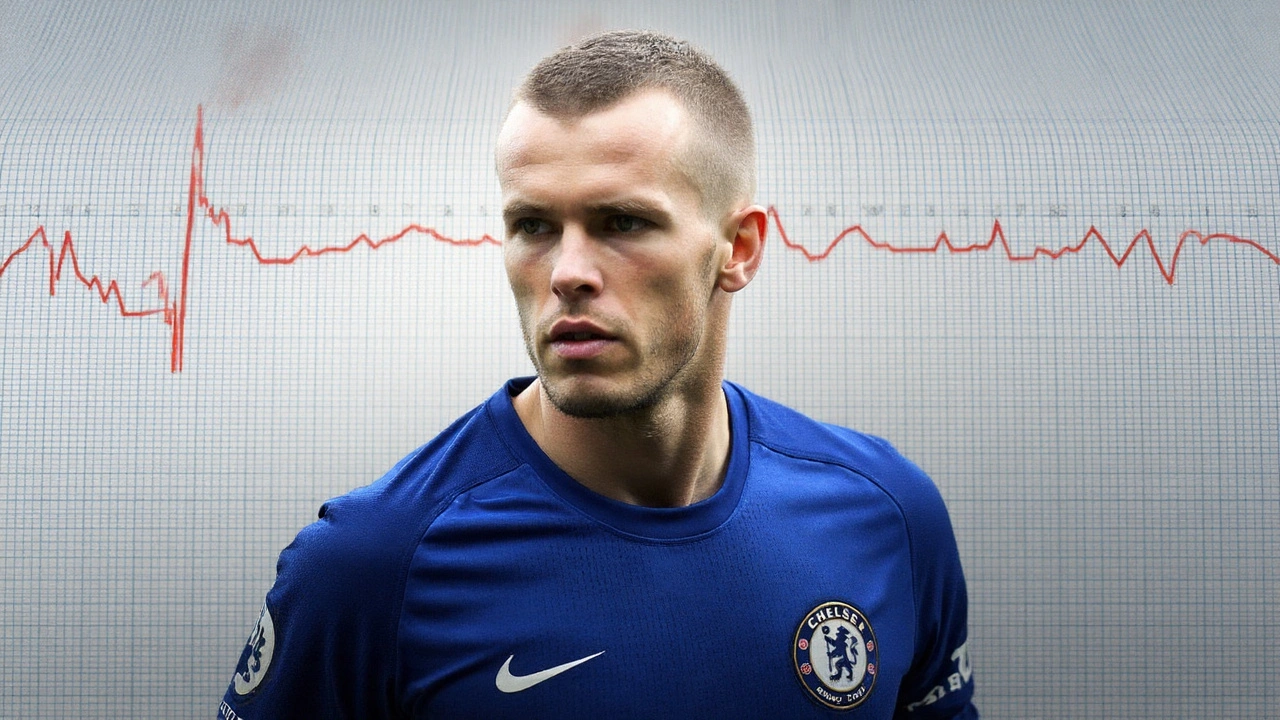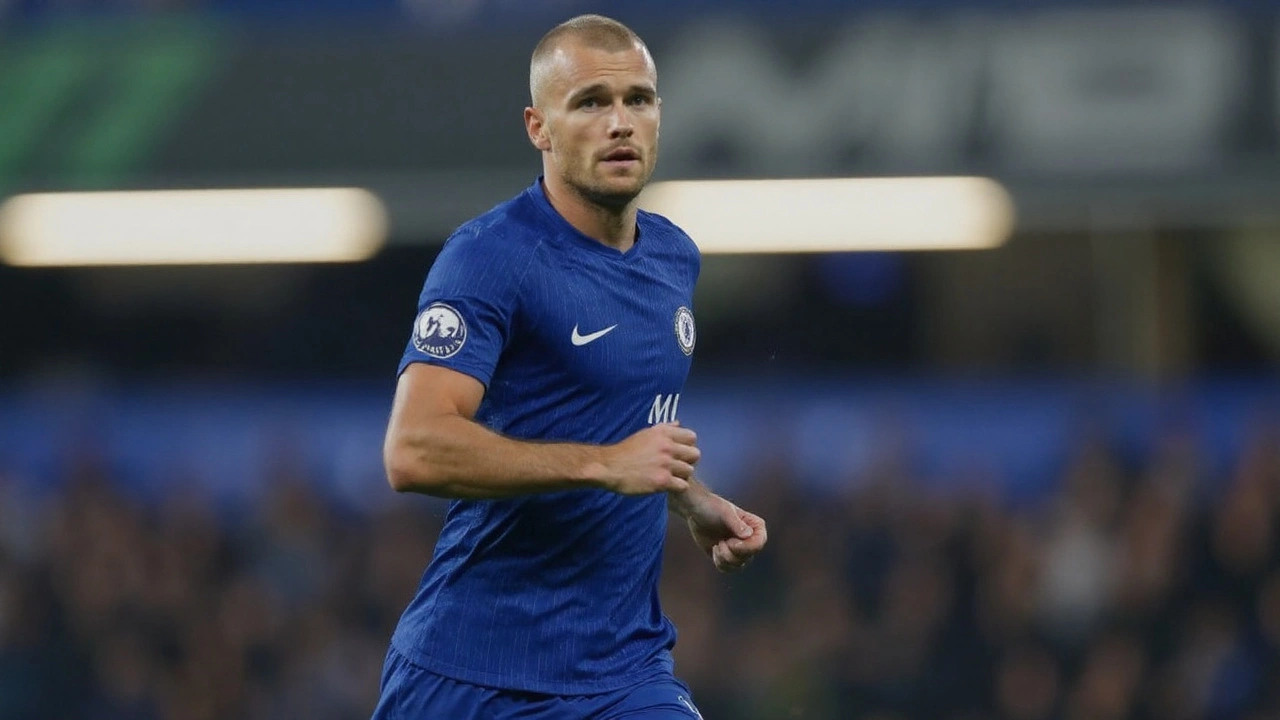What happened and where the case stands
Mykhailo Mudryk is facing the biggest fight of his Chelsea career after the Football Association charged him with anti-doping violations over a positive test for meldonium, a substance banned in sport since 2016. The 24-year-old Ukrainian tested positive from a sample collected at the end of October and was provisionally suspended in December 2024. He has missed Chelsea’s last five matches.
The FA confirmed the charge but said it cannot comment further while the case is active. Chelsea have also declined to discuss details. Head coach Enzo Maresca initially put Mudryk’s absence down to illness. He has since said the winger remains part of the squad “until further notice,” though a provisional suspension prevents him from playing and puts any return on hold until the case is resolved.
Mudryk has publicly denied wrongdoing. In a message to supporters on Instagram, he said the result was a “complete shock” and that he has “never knowingly used any banned substances or broken any rules.” People close to the player say his team is exploring how the substance could have entered his system and is preparing a contamination defence, with one line of inquiry focusing on something he may have taken while outside the United Kingdom.
The stakes are high. Under global anti-doping rules, a positive test can bring a ban of up to four years if the violation is judged intentional. If an athlete proves the use was not intentional, the starting point usually falls to two years, and it can be reduced further if they show “no significant fault” or contamination. The outcome will be decided by an independent panel after a formal hearing.
For Chelsea, the uncertainty lands in the middle of a demanding season and raises awkward questions about squad planning. The club paid around £89 million to sign Mudryk from Shakhtar Donetsk in January 2023 and mapped out a long development path for him. Any lengthy suspension would disrupt that trajectory and test the club’s patience with a player they believed could evolve into a top-tier Premier League attacker.

What is meldonium and what penalty could he face?
Meldonium, also known by its brand name Mildronate, is a metabolic modulator developed in Latvia and prescribed in parts of Eastern Europe for heart and circulation issues. It is not licensed in the UK. The World Anti-Doping Agency (WADA) banned it in 2016 after studies and intelligence suggested athletes were using it to improve endurance and recovery. It sits on the Prohibited List in the class of metabolic modulators and is banned both in and out of competition.
The most high-profile meldonium case to date involved tennis player Maria Sharapova, who tested positive shortly after the ban took effect in 2016. She received a suspension that was later reduced on appeal after an arbitration panel accepted she did not intend to cheat. That case underlined two realities: the strict liability principle—athletes are responsible for what is in their bodies—and the possibility of a reduced sanction if they can demonstrate lack of intent and limited fault.
Football has seen far fewer doping cases than some endurance sports, but they do happen. English football follows the UK Anti-Doping (UKAD) framework. The process is familiar: a positive A sample leads to a provisional suspension and a charge; the athlete may request analysis of the B sample; they then choose to admit or contest the charge. A hearing before the National Anti-Doping Panel (NADP) examines evidence from both sides—lab results, medical records, supplement logs, travel history, and expert testimony—before issuing a written decision. Sanctions can be backdated in certain circumstances and appeals are available through established channels.
If Mudryk can show the substance entered his body via a contaminated product and that he took reasonable care, the panel could significantly reduce any ban. If the panel finds intent, he risks four years out. In practical terms, even a shorter suspension would sideline him across all sports governed by the WADA Code. A ban is global, not limited to the Premier League.
There is also the human factor. Players rely on team doctors, nutritionists, and personal staff, especially when they travel or train away from their club. The risk often hides in supplements or medications sourced outside tightly regulated markets. That’s why many club medical departments run closed systems—only approved products, batch-tested where possible, with strict logs. If Mudryk’s camp argues contamination, expect them to present receipts, batch numbers, and independent lab tests to trace the source.
On the football side, Chelsea must navigate the uncertainty week-to-week. A provisional suspension means Mudryk cannot play, and his involvement in club activities is limited by anti-doping rules and club policy. The club can still provide support—legal, medical, and welfare—while the case runs its course. From a squad perspective, Maresca has leaned on other wide players and academy options to cover the minutes. January and summer planning could shift depending on how long this drags on.
One curious twist is the noise around a possible switch to athletics. Reports in Ukraine and the UK suggest Mudryk has long harbored an interest in sprinting and could explore a bid for the 2028 Los Angeles Olympics. It sounds dramatic, but the reality is simple: any sanction under the WADA Code would apply across sports. If he is cleared or receives a backdated, short suspension, track might become a hobby or off-season project. If he is banned for longer, the track route would remain closed until the suspension ends.
So what happens next? Mudryk will formally respond to the charge, if he hasn’t already. A B-sample analysis, if requested, would be scheduled. Both sides will prepare for a hearing—collecting medical records, supplement lists, and expert reports. Timelines vary, but contested cases can take months. If he is cleared, he could return quickly. If he is sanctioned, the written decision will set out the length of the ban and the reasons, and it will be published once confidentiality rules allow.
It’s a messy, uncomfortable story for a gifted player whose Chelsea career has already been under the microscope. For now, all eyes are on the evidence. The science will matter. The paperwork will matter. And the panel’s view of intent—and whether contamination is proven—will decide whether Mudryk’s setback is a short detour or a long exile from the game.


Comments (20)
That’s a massive blow for Chelsea and Mudryk’s career.
The anti‑doping landscape is harsh, but there’s precedent for reduced bans when contamination can be proved. Mudryk’s legal team will likely lean on the fact that meldonium isn’t licensed here and that many supplements from Eastern Europe have been flagged before. If they can produce batch numbers and independent lab analysis, the panel might start from the two‑year baseline rather than the full four. It’s also worth noting that the FA’s provisional suspension means Chelsea can’t field him, but they can still support his defence financially. The club’s medical staff will be under the microscope too – clubs are expected to keep tight control over what players ingest.
When we look at the broader picture, the case of Mykhailo Mudryk is more than just a personal tragedy; it’s a reflection of the systemic pressures athletes face in modern sport.
First, the relentless drive for performance pushes players to seek every marginal gain, even if that means trusting unregulated markets.
Second, the global nature of football means a player can easily acquire supplements abroad, where quality standards differ dramatically.
Third, the strict liability principle in anti‑doping law places the entire burden on the athlete, regardless of intent.
Fourth, history shows us that even elite athletes have fallen victim to contaminated products – think of the many cases involving tainted creatine or herbal blends.
Fifth, the psychological toll of a provisional suspension can be devastating, affecting not only the player’s confidence but also team morale.
Sixth, clubs like Chelsea must balance legal support with public relations, ensuring they appear both caring and diligent.
Seventh, the media narrative often simplifies the issue to “doping scandal” without exploring the nuance of contamination versus intentional use.
Eighth, the legal process itself is lengthy; a B‑sample request, hearings, and potential appeals can stretch over months.
Ninth, a reduced sanction still means a significant loss of playing time, which can alter a young player’s development trajectory.
Tenth, the financial implications for the club are non‑trivial – transfer fees, wages, and squad planning all hang in the balance.
Eleventh, there’s an ethical dimension: should clubs impose stricter internal testing regimes to protect their assets?
Twelfth, fans are left in limbo, debating loyalty versus principle while the player’s future hangs in uncertainty.
Thirteenth, the role of medical staff cannot be ignored; they are gatekeepers of safe supplementation.
Fourteenth, education on doping risks is essential, especially for players moving between countries with different regulations.
Fifteenth, ultimately, the outcome will hinge on the quality of evidence presented – receipts, batch numbers, and expert testimony.
Sixteenth, regardless of the verdict, this saga will likely spark a broader conversation about the safety of global supplement supply chains.
Honestly, the whole thing looks like a PR stunt to distract from Chelsea’s poor form.
🤔 It’s easy to jump to conclusions, but the facts matter more than speculation.
They’re probably covering up a bigger conspiracy involving the supplement industry and elite sports.
While we wait for the panel’s decision, it’s worth remembering that anti‑doping regulations are designed to protect the integrity of sport, not to punish athletes without due cause. The procedural safeguards – A‑sample, B‑sample, hearing – ensure that every athlete gets a fair chance to present their case. In Mudryk’s situation, the key will be establishing whether the meldonium entered his system unintentionally, perhaps through a contaminated supplement purchased abroad. If he can demonstrate a lack of significant fault, the sanction could be markedly reduced. This is not just a legal battle; it’s also a lesson for clubs to tighten their supplement vetting processes.
Good point, the process is there for a reason.
Bottom line: Chelsea should keep backing Mudryk while he fights this, otherwise they risk losing a huge investment.
The club’s duty of care extends to legal support as well as medical assistance, which should be evident in this case.
It’s absurd that a player can be dragged into a four‑year exile over what might be a simple mix‑up.
From a performance‑analysis standpoint, the risk‑benefit calculus of strict anti‑doping measures is clear: preserving fair competition outweighs occasional inadvertent exposure, but mitigation strategies such as certified supply chains can reduce false positives.
In the wider context, this incident could push the Premier League to adopt stricter guidelines on supplement certification, something that would benefit all clubs and players in the long run. It also highlights the responsibility of agents and personal trainers, who often act as the conduit for these products. By enforcing a zero‑tolerance policy on unverified supplements, the league can safeguard its reputation and protect its athletes from unintended infractions. Meanwhile, the fans deserve transparency; they want to know that the players on the pitch are competing on a level playing field.
Exactly, clearer rules would help everybody.
For those unfamiliar, the WADA code sets the standard for bans; showing contamination can halve the default period.
While we’re talking about fairness, it’s odd how some nations get away with lax testing while others face harsher scrutiny.
Honestly, the whole drama feels like a soap opera – 😅 can't wait to see the next episode.
It’s definitely entertaining, but the stakes are real for the player’s livelihood.
Let’s hope the evidence clears him up soon – the sooner he’s back, the better for everyone.
All this talk about bans ignores the moral duty athletes have to stay clean; any excuse is just that – an excuse.